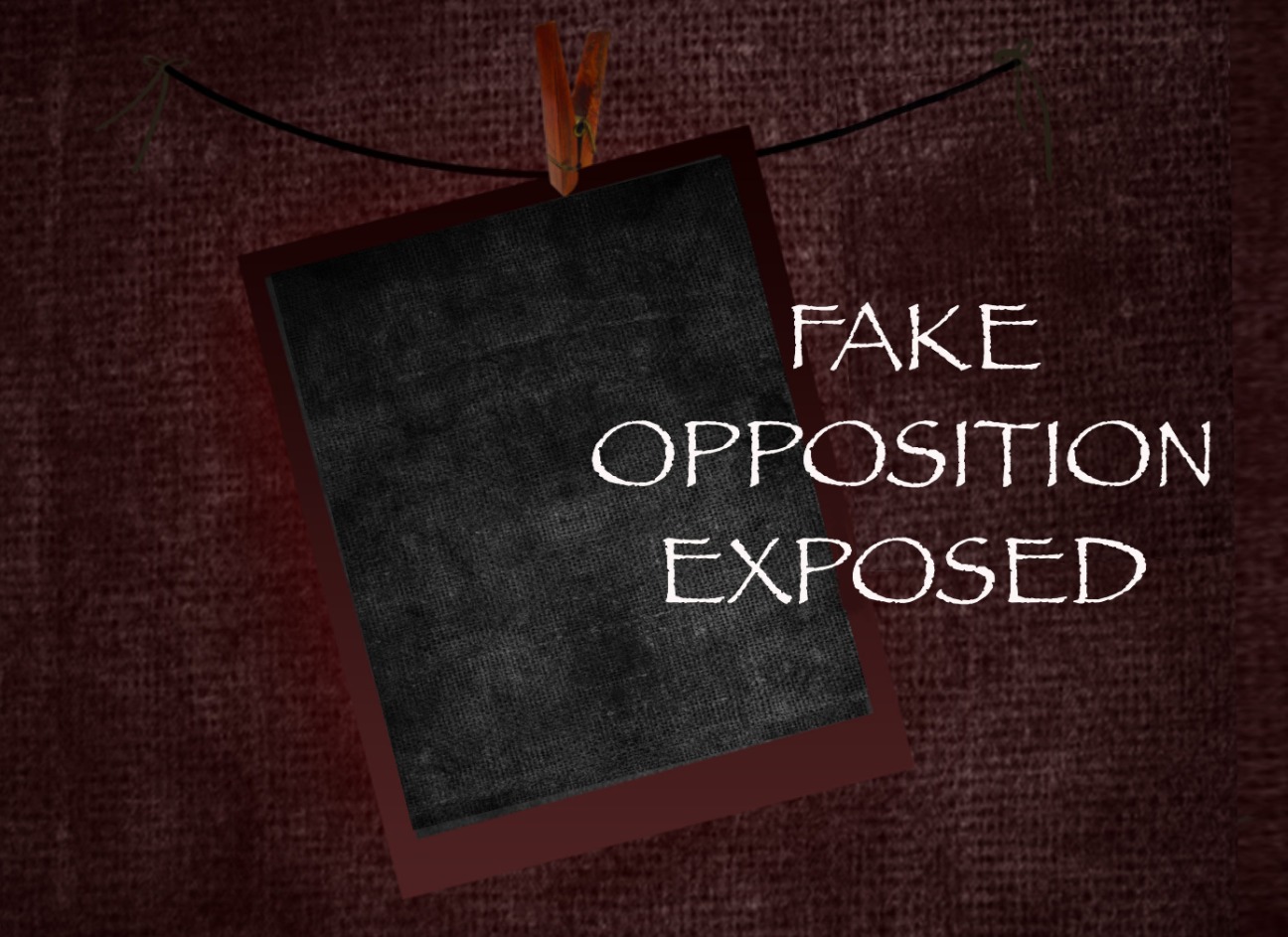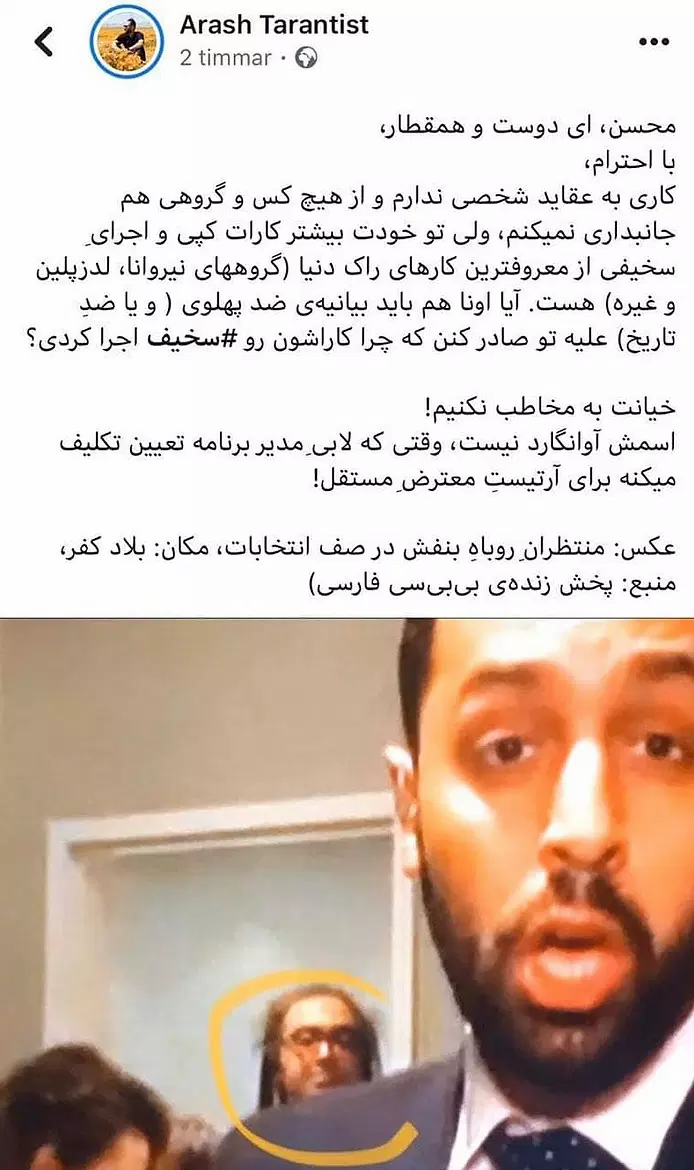Who is Mohsen Namjoo?
- fakeoppoexposed

- May 19, 2021
- 3 min read
Updated: Nov 9, 2024
Mohsen Namjoo was born on March 4, 1976 in Torbat-e-Jam. Mohsen is an Iranian musician and singer. His first album “Toranj” was licensed by the Islamic Development Organization’s Arts Department and was published by Ava-ye Barbod Institute.
As the activities of the “Me too” campaign, particularly several disclosures of sexual harassment circulated rapidly among Iranians over the Internet and social media, fingers were pointed at Mohsen Namjoo. Perhaps the most controversial scandal revolved around Aydin Aghdashloo, a notable Iranian painter and art analyst known to be one of the pillars of the enigmatic Tehran Art Auction, which is rumored to be a hub for money laundering under the guise of selling art pieces. Najmoo was accused of rape and sexual harassment by an anonymous user under the pseudonym “Maahi”, which he later denied.
Unfortunately, the story did not end there. Towards the end of March 2021, Namjoo was accused of sexual abuse by multiple women; Panida (a 2016 contestant on Manoto’s Stage), Luna Shad (a former VOA Persian reporter), and Boshra Dastournezhad (an actress and model). Namjoo released a video acknowledging the sexual harassment and apologized to the victims. Shortly after, an audio file leaked where Namjoo states, “a year has passed since this movement was formed and we are yet to see a legit person among the victims”, and “you’re depriving an artist of his work -- I apologize humbly for saying this -- whose one hour of merely breathing is equivalent of six months of life for each of you”. Namjoo’s arrogant and demeaning remarks provoked outrage among several women’s rights activists. Some called Namjoo a misogynist among other things.
It is beyond the scope of this article to verify the claims of the victims and to judge whether some of the attacks against Mohsen Namjoo were motivated by personal vendettas. Those who are attacking Namjoo today were once his best friends, and in many cases tried to whitewash the accusations against him. But now that the story has been exposed, and has gained coverage in the media, these same friends deny having ever defended him. It is only fair to place these individuals in the same category as Namjoo. The purpose of this article is not to address their hypocrisy. There are many shady aspects in Namjoo's career-- both artistically and financially-- which may shed some light on the aforementioned accusations of sexual harassment and assault
First, let us focus on one of Namjoo's closest friends, Yahya Alkhansa. Yahya Alkhansa is a member of “127” band and has performed in a number of Mohsen Namjoo’s concerts.
Alkhansa played at a number of events organized by a notorious organization called NIAC (National Iranian American Council). He also made great efforts to raise funds for NIAC. In 2017, he cast his ballot in one of several the polling stations of the Islamic Republic of Iran, located in the United States.

For many years, NIAC has been trying to reach out to Iranians living in the United States to use them to advance and achieve its own interests which in fact overlaps with the interests of the Islamic Republic of Iran. NIAC has built relationships with journalists in American media to introduce and promote artists such as Namjoo and comedian Maz Jobrani for years. Nazila Fathi is one of these journalists. She wrote an article for the New York Times, where she endorsed Namjoo and called him the Bob Dylan of Iran.

In May 2017, a performance of Shakespeare’s “Hamlet” was held in the United States with the support of NIAC. Namjoo was in charge of the music and choreography for this event.


In an attempt to portray itself as a legitimate human rights organization, NIAC sometimes writes about human rights violations in Iran, selectively and in a very watered-down fashion.
NIAC usually only reports on topics related to human rights violations that fit its agenda and serves its strategic goals in being a mouthpiece for the Islamic Republic regime of Iran. Given this, it is not surprising that NIAC published the news of Mohsen Namjoo’s brother, Hamid Namjoo’s one-year prison sentence on its website. Pointing out NIAC's double standards in covering human rights violations does not deny the oppression that many artists and activists living in Iran face. Rather, it confirms the fact that the Islamic Republic stifles and represses activists inside the country while allowing selective news to be published abroad to help forward its goals.
As the truth about Namjoo’s relationship with NIAC unfolds, some key questions arise: why does NIAC only support individuals with moral, sexual, and financial corruption in their records? They say birds of a feather flock together. Then, couldn’t it be deduced that only criminals cooperate with a criminal cult?
Now is the time for Namjoo’s many friends and accomplices to be cautious and ask themselves: Shouldn’t Namjoo’s relationship with the notorious NIAC be a reason to cut ties with this “celebrity”?










Comments